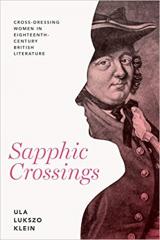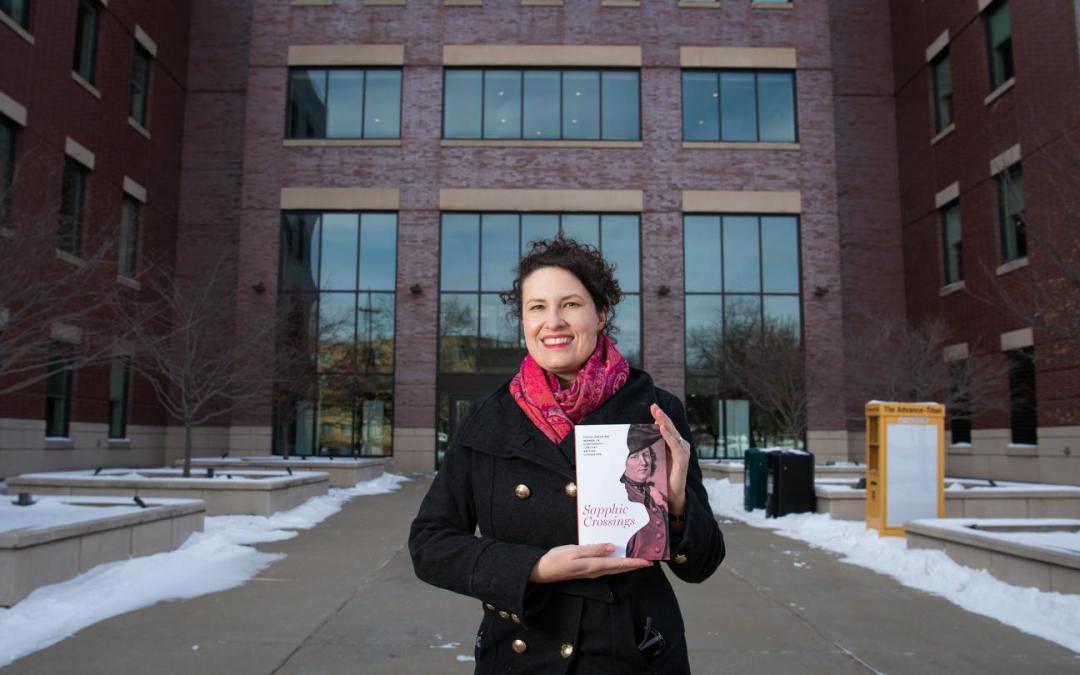Sapphic Crossings, a new book by the Women’s and Gender Studies program director at the University of Wisconsin Oshkosh, explores why cross-dressing women were popular in 18th century British literature.
Ula Lukszo Klein’s research for the academic book, available Feb. 4 from the University of Virginia Press, also considers why and how cross-gender appearance signaled lesbian desire to 1700s readers.
The title of Klein’s book references “sapphic,” the most common term for same-sex female desire at the time.
“My main argument is that 18th century authors and readers enjoyed reading about sapphic relationships in literary texts, and that works of literature often presented these relationships not just for the male gaze, but rather as legitimate forms of desire and relationships,” she said.

The cross-dressed woman, or the “butch” character, appears so overwhelmingly appealing to other women that the texts suggest any woman has the potential to develop same-sex desires, she said.
“This was a fascinating idea at a time when heterosexuality was a default expectation in most places in the world,” said Klein, adding that the texts she studied form an important part of trans and lesbian history.
“I was struck by the fact that these people could also be considered transgender in today’s world. And yet, in the 18th century, they were always thought of as women who wished to be men so they could love other women … transgender embodiment was the critical way of thinking about same-sex desire.”
Klein said the word “crossings” from the book’s title has several meanings in her work.
“Crossings is important because of cross-dressing but also the cross-gender representation as well as the various crossings these women engage in: crossing the globe in their travels, crossing the stage in their performances, crossing genres from pamphlets to newspaper stories to ballads to novels,” she explained. “Finally, the discourse surrounding cross-gender representation crosses into other categories of discourse relating to race, ability and nationality.”
Klein joined UW Oshkosh in August 2020 to lead the interdisciplinary Women’s and Gender Studies program. She has published numerous articles on cross-dressing women and lesbian representation in literature and film.
Her other areas of expertise include LGBTQ+ issues, women’s issues, lesbians in history, women in the military, reproductive rights, women in sports, roller derby and feminism.
Klein earned a doctorate in English with a graduate certificate in women’s and gender studies from Stony Brook University in 2013. She then taught at several other public universities, including Tennessee Technological University, in Cookeville, Tennessee; Texas A&M International University in Laredo, Texas; and Kennesaw State University in Kennesaw, Georgia.
Learn more:

